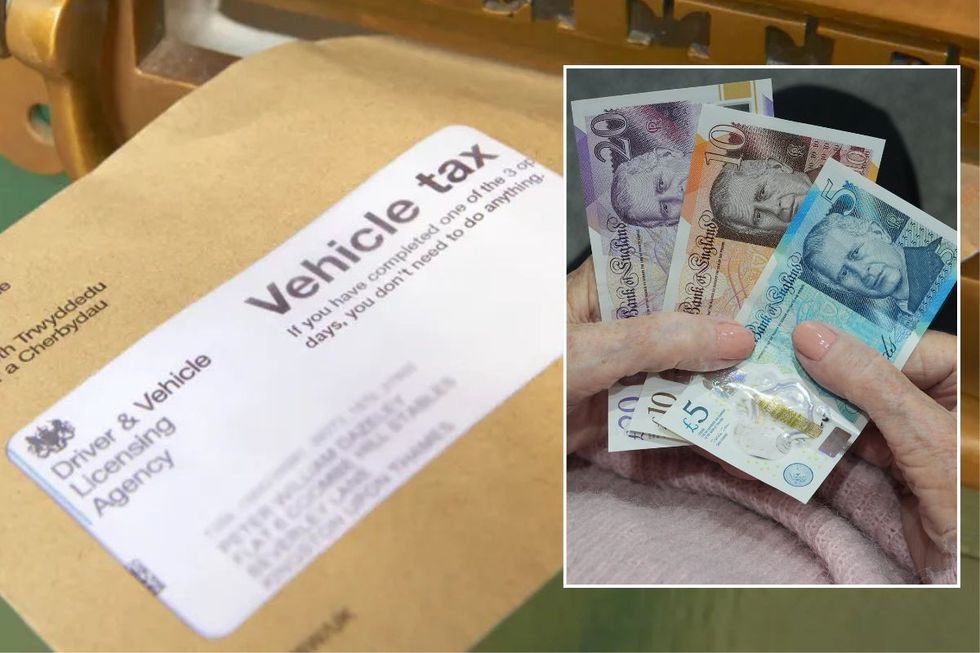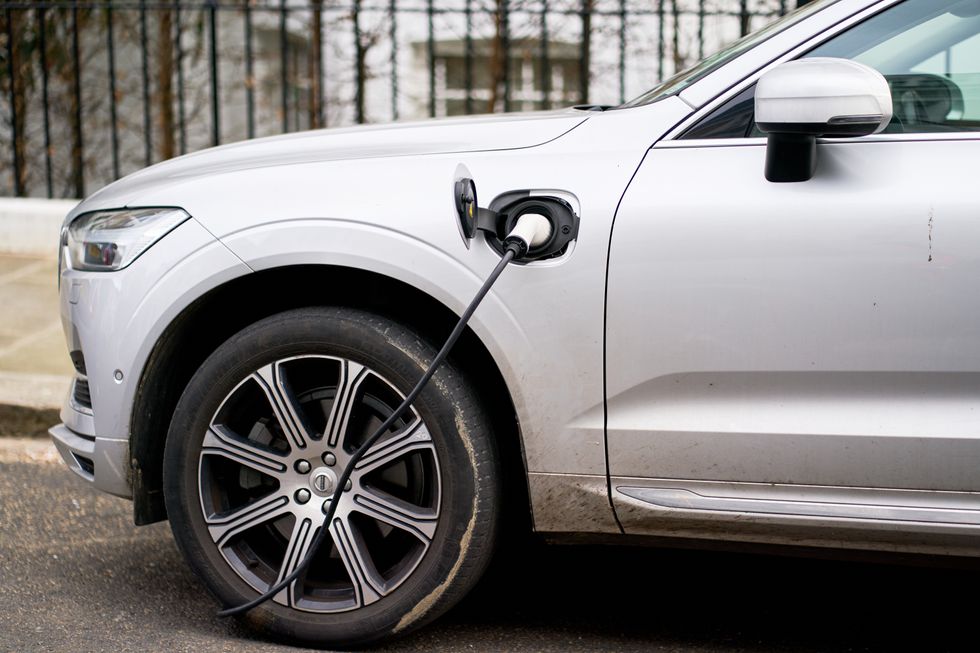WATCH: Rachel Reeves says she will continue to support the purchasing of electric vehicles
GB NEWS
Most drivers will automatically be slapped with a £195 fee
Don't Miss
Most Read
Trending on GB News
More than one million drivers will now be required to pay car tax for the first time as the Government aims to make the system of motoring taxation fairer for all motorists.
From today, Tuesday, April 1, 2025, electric cars, vans and motorcycles will have to pay Vehicle Excise Duty (VED) in the same way as owners of petrol and diesel vehicles.
Unlike some of the other car tax changes being introduced today, the VED rules will apply to new and existing electric vehicles.
According to data from EV charging database Zapmap, there are over 1.4 million fully electric vehicles in the UK, with one in four new registrations in February being battery electric.
Do you have a story you'd like to share? Get in touch by emailingmotoring@gbnews.uk

Many drivers will be paying Vehicle Excise for the first time today
GETTY/PA
The measures were introduced in the 2022 Autumn Statement by former Conservative Chancellor Jeremy Hunt, who said the change would "make our motoring taxation system fairer".
Any electric, zero or low emission cars registered on or after April 1, 2025, will need to pay the lowest first year rate of vehicle tax, which will cost them £10.
From the second tax payment onwards, they will go to the first level of standard rate of VED, which is £195.
Any EVs registered between April 1, 2017, and March 31, 2025, will pay the standard rate from April 1, 2025, which will cost £195.
Zero emission vehicles registered between March 1, 2001, and March 31, 2017, will move to the first band that has a VED value which is currently £20.
Any electric vans will move to the standard annual rate for light goods vehicles, which is currently £335, and applies to any LGV registered after March 1, 2001, and not over 3,500kg maximum gross weight.
Any zero emission motorcycles or tricycles will also be liable to pay Vehicle Excise Duty and will move to the rate for the smallest engine size, which is currently £25 a year.
The Department for Transport also highlight that the £10 annual discount for hybrid vehicles and alternatively fuelled vehicles (AFVs) will be removed.
Any vehicles registered before April 1, 2017, will pay based on the emissions output, while owners of vehicles registered on or after that date will pay the standard rate of £195.
The Driver and Vehicle Licensing Agency (DVLA) has consistently called on owners of electric cars to make sure they are aware of the incoming tax changes.
In addition to letters sent to registered owners of electric vehicles, the DVLA has launched a social media campaign urging motorists to be aware that their vehicles must be taxed, with payments necessary from April 1, 2025.
Experts have warned drivers to remain aware of any potential scams which could leave them out of pocket, especially when taxing their vehicle for the first time.
LATEST DEVELOPMENTS:
- Low Emission Zone update could see drivers lose funding across major UK cities as grant ends today
- Car tax changes launching tomorrow could see drivers avoid electric vehicles and pay 'petrol premium'
- Aston Martin receives £125million boost from Lawrence Stroll amid serious threat from Trump's car tariffs

There are estimated to be more than 1.4 million battery electric vehicles across the UK
PARhydian Jones, car insurance expert at Confused.com, said: "Since January 2021 and October 2024, five million fines have been handed out by DVLA for untaxed vehicles with fines of more than £500million.
"It’s important to keep your vehicle taxed and up to date; however, this presents an opportunity for scammers to target drivers."








